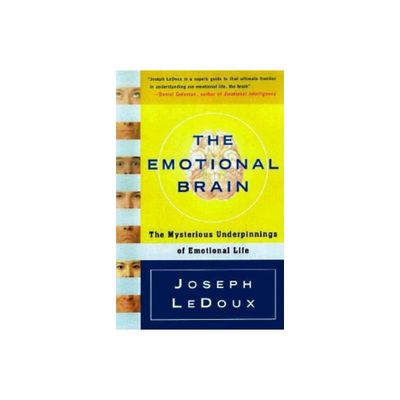Home
Unlocking the Emotional Brain: Eliminating Symptoms at Their Roots Using Memory Reconsolidation
Loading Inventory...
Barnes and Noble
Unlocking the Emotional Brain: Eliminating Symptoms at Their Roots Using Memory Reconsolidation
Current price: $170.00


Barnes and Noble
Unlocking the Emotional Brain: Eliminating Symptoms at Their Roots Using Memory Reconsolidation
Current price: $170.00
Loading Inventory...
Size: Hardcover
*Product Information may vary - to confirm product availability, pricing, and additional information please contact Barnes and Noble
In
Unlocking the Emotional Brain,
authors Ecker, Ticic, and Hulley equip readers to carry out focused, empathic therapy using the potent process of memory reconsolidation, the recently discovered and only known process for actually unlocking emotional memory at the synaptic level. The Routledge classic edition includes a new preface from the authors describing the book's widespread impact on psychotherapy since its initial publication.
Emotional memory's tenacity is the familiar bane of therapists, and researchers had long believed that emotional memory forms indelible learning. Reconsolidation has overturned these views. It allows new learning to truly nullify, not just suppress, the deep, intensely problematic emotional learnings that form, outside of awareness, during childhood or in later tribulations and generate most of the symptoms that bring people to therapy. Readers will learn methods that precisely eliminate unwanted, ingrained emotional responses--whether moods, behaviors, or thought patterns--causing no loss of ordinary narrative memory, while restoring clients' well-being. Numerous case examples show the versatile use of this process in AEDP, coherence therapy, EFT, EMDR, and IPNB.
Unlocking the Emotional Brain,
authors Ecker, Ticic, and Hulley equip readers to carry out focused, empathic therapy using the potent process of memory reconsolidation, the recently discovered and only known process for actually unlocking emotional memory at the synaptic level. The Routledge classic edition includes a new preface from the authors describing the book's widespread impact on psychotherapy since its initial publication.
Emotional memory's tenacity is the familiar bane of therapists, and researchers had long believed that emotional memory forms indelible learning. Reconsolidation has overturned these views. It allows new learning to truly nullify, not just suppress, the deep, intensely problematic emotional learnings that form, outside of awareness, during childhood or in later tribulations and generate most of the symptoms that bring people to therapy. Readers will learn methods that precisely eliminate unwanted, ingrained emotional responses--whether moods, behaviors, or thought patterns--causing no loss of ordinary narrative memory, while restoring clients' well-being. Numerous case examples show the versatile use of this process in AEDP, coherence therapy, EFT, EMDR, and IPNB.


















